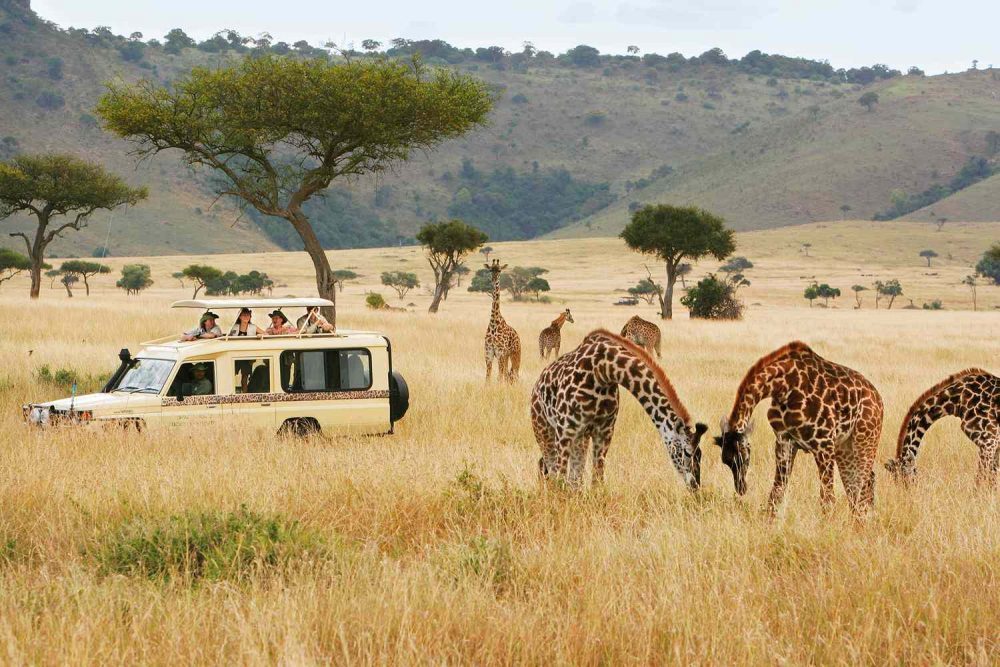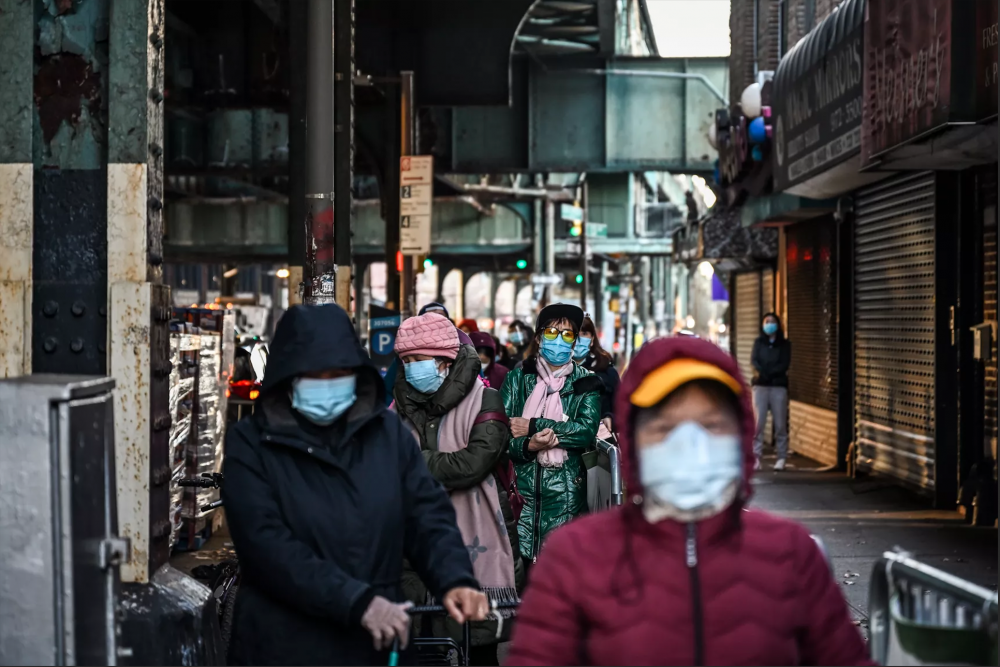
FELIX ZHANG – SEPTEMBER 6, 2023
EDITOR: ARYAN SHAFAT
Overview of Safari
From a distance, the cluster of palm trees in the Kenyan plains seems like an oasis. The verdant green colors stand out in the late summer landscape that has faced a particularly dry August. Going closer to the grove, it becomes clear that this is not a natural oasis, but instead a man-made resort that is designed to provide all the comforts of luxury while getting wealthy international tourists up close to Africa’s abundant wildlife. In Kenya, where roughly 8% of total GDP in 2019 came from the safari-driven tourism industry, safari is not just another experience, but an integral part of the national economy. Kenya is not alone when it comes to having a robust safari industry; in countries like Botswana and South Africa, safari is also a crucial stream of income while serving as a tool for public image and government diplomacy.
Across Kenya’s southern border in Tanzania, a 2014 study found that the safari industry accounted for 345,000 jobs in 2011, including nature guides, service staff working in hotels and resorts, drivers, and conservationists. Like Kenya, Tanzania’s economy is also heavily reliant on its tourism industry. In 2019, before the COVID-19 pandemic impacted international tourism, 10.6% of the country’s total GDP came from the tourism sector, with 2022 revenues nearly recovering to that point.
Annually, the safari industry has generated over $12 billion in revenues for Africa’s top wildlife destinations. This is not to mention the revenue earned by other service and hospitality industries that benefit as proxies of safari tourism. For many rural Africans, safari is the single most important source of income, with the COVID-19 pandemic demonstrating safari’s net economic impact. The pandemic led to a 93% decrease in tourist arrivals, forcing the majority of safari companies to lay off employees and cancel planned tours and trips. Because each safari job in Africa supports 8 to 10 dependents, a downward trend in safari sales could cause trickle-down effects for families and communities. The safari powerhouse of Kenya saw a loss of over $1 billion in tourism revenues in 2020 alone, and in some parts of safari-reliant Africa, subsistence poaching increased by up to 200% as individuals required food and income to weather the virus-driven downturn.
Safari is so crucial to rural Africa because of a lack of other reliable jobs. The land is generally not fertile enough to turn a profit on agriculture, and the developing nature of many of Africa’s economies means that rural areas often get left behind when countries consider how to grow and expand. Additionally, in most of these countries, there is a lack of a strong social safety net, meaning that a steady stream of tourists is analogous to a steady stream of income.
Therefore, it becomes clear that safari is a crucial component to financing community wide projects that can help lift villages out of poverty. Traditionally, tourism funds have led to community development programs, including the construction of schools and health clinics, which could prove crucial in providing economic opportunities for the next generation of rural Africans. As part of a continent wide initiative, the African Continental Free Trade Area has identified tourism as a priority sector to increase intra-regional trade. Continent wide reforms to make travel easier and more affordable for both domestic and international tourists can prove crucial for lower to middle income sub-saharan countries by improving the business environment, generating improved infrastructure, and leading to a more unified continental economy. While safari will be crucial to African economic development, countries must also recognize the volatility of relying on the tourism sector, as exemplified by the pandemic. It is important for safari to be a component of African economic growth, but in conjunction with development in other sectors. Investing safari funds towards community development projects is one way to generate more jobs, higher educational outcomes, and bring economic diversification in currently safari-reliant regions.
Safari and Conservation
Following the decolonization of Africa in the second half of the 20th century, local governments began protecting wildlife, realizing the need to preserve their most valuable assets for future generations. While this forced many local tribes to adapt their customs of hunting game, it also gave rise to a lucrative and environmentally degrading poaching industry.
While the poaching industry has been declining in recent years due to stronger regulations and improved patrolling, experts fear that the lack of economic inflows due to the continuing impacts of the pandemic could reaggravate poaching as a desperate means to make money. The pandemic has exasperated this issue, but poaching has historically been an in demand profession for many of the rural poor in Africa. Rhino horn, for example, has experienced high demand from the east Asian market for perceived medicinal benefits, causing it to sometimes be worth more than diamonds by weight. Therefore, some rural Africans may risk getting into trouble with rules and regulations because of the potential economic implications from selling rhino horn or authentic elephant ivory.
More recently, safaris have begun to take a more conservationist approach, with a generation of more socially conscious travelers visiting the African continent. However, while many lodges now offer programs such as allotting a certain percentage of revenues towards conservationist efforts, safaris may still have a negative impact on native African wildlife. Some experts fear that safaris may distort natural animal behaviors, as the process of going on a safari involves actively looking to observe and photograph wildlife. While the ethics of safari for animals are not clear cut, the revenues generated from safaris end up incentivizing the preservation of local African wildlife, due to preservation’s associated economic benefits.
Safari and People
It is impossible to discuss the economic implications of safari without considering its impact on the people of Africa. The first safari tourists who began to visit Africa in the 19th century were rich Victorian-era Europeans, who were most often there to collect rare African animals as trophies. During the early era of safari, it was white Europeans who served as hunting guides, while black Africans were barely paid to serve as porters. Because of its origin from aristocratic and colonial European society, safaris have often been rightfully connected with the brutal European conquest of Africa.
To this day, the safari industry is still largely dominated by white male Africans while primarily serving white international tourists. In places like South Africa, the majority of ownership of land and private companies in the safari industry is controlled by white Afrikaners. There has also been a long standing dynamic in the safari industry where white Africans achieve more lucrative positions as leading tour guides, receiving better pay and tips. Meanwhile, black Africans, who are often forced to only work on the service side of safari, earn salaries as low as $500 USD a month, potentially less than the cost of a one night stay for a rich international tourist. These service side employees may often be forced to work for up to three consecutive weeks on end, with poor housing conditions and little to no benefits.
Another one of the colonial impacts that still plagues African communities is the concept of “Fortress Conservation”. Fortress conservation is a doctrine in which the separation of land for wildlife and people is strictly enforced. This type of conservation has certain benefits, as it prioritizes the preservation of natural spaces. However, it is important to consider the ways that fortress conservation has been used to exploit and devalue indigenous people who have lived in regions for generations. In the past this took form with exclusionary laws that ensured that white safari tourists could have untamed and unpopulated wilderness to sightsee and hunt. Meanwhile, black Africans who had lived on the land for generations were not allowed to engage in their traditional relationship with the flora and fauna that involved subsistence hunting and harvesting. Fortress conservation can contribute to curate an image of an untamed African wilderness while ignoring the history of the land’s prior human inhabitants and their colonial exploitation.
Conclusion
As with any tourist industry, safari is not perfect by any means. There are ethical questions that have to be brought up about the way that safaris have treated both animals and people in the past and present. Despite its flaws, safaris are an important driver of economic growth in the African continent, especially for rural areas that might not receive many other opportunities. While not a silver bullet for Africa’s development, safaris can also be a crucial component in Africa’s expanding international reach. Furthermore, safaris should increase their localization and make sure that benefits remain largely within the local communities that ensure the smooth operation of the industry. As Africa further integrates into the globalizing world economy, the continent will only see an increased number of visitors, and how the safari industry adapts to benefit people and nature will be squarely in the spotlight.
Featured Image Source: Travel and Leisure
Disclaimer: The views published in this journal are those of the individual authors or speakers and do not necessarily reflect the position or policy of Berkeley Economic Review staff, the Undergraduate Economics Association, the UC Berkeley Economics Department and faculty, or the University of California, Berkeley in general.


